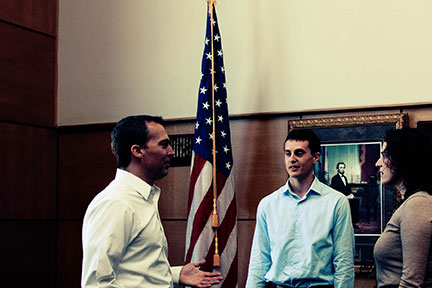
Earlier this month the Sixth Circuit Court of Appeals reviewed the Title VII employment discrimination claims of two Catholic nuns who alleged that the American Red Cross and a separate local emergency management agency religiously discriminated against them when the organizations terminated the nuns' work relationships with the organizations. Marie v American Red Cross, No. 13-4052, 2014 WL 5905003 (CA 6 November 14, 2014). Before their relationships with the organizations were severed, the nuns served as disaster relief volunteers for both organizations.
The Court's main task in Marie was to determine under what circumstances Title VII protects volunteers from employment discrimination. Because the Sixth Circuit had determined in a previous case (Bryson v Middlefield Volunteer Fire Dept, Inc, 656 F3d 348 (CA 6 2011)) that "volunteers potentially may be employees for purposes of Title VII," the key issue in Marie was whether the nuns -- who worked as volunteers at the above-listed organizations -- could be characterized as "employees" of either organization for the purposes of their Title VII employment discrimination claims. To answer this question the Court applied a 13-factor "common law agency test" cited by the United States Supreme Court in Nationwide Mut Ins Co v Darden, 503 US 318 (1992).
The 13-factor "common law agency test" is very fact-sensitive and appears to afford trial courts a high level of discretion when evaluating the employment relationship at issue. The test considers various factors including "the hiring party's right to control the manner and means by which the product is accomplished," the tax treatment of the hired party, and the hired party's role in hiring and paying assistants.
After reviewing numerous facts within the framework of the "common law agency test," the Sixth Circuit ultimately determined that the nuns could not be characterized as employees for their Title VII claims. The Sixth Circuit pointed to reasons such as neither organization provided the nuns with benefits usually provided to employees, neither organization decided when and how long the nuns worked, and the nuns did not receive W-2, W-4, or I-9 forms or pay income taxes as a result of their relationships with the organizations. Because the nuns could not be characterized as "employees" for the purposes of their Title VII employment discrimination claims, the Sixth Circuit affirmed the dismissal of their Title VII claims.
EMPLOYMENT LAW DISCRIMINATION & HARASSMENT EMPLOYMENT CONTRACTS
